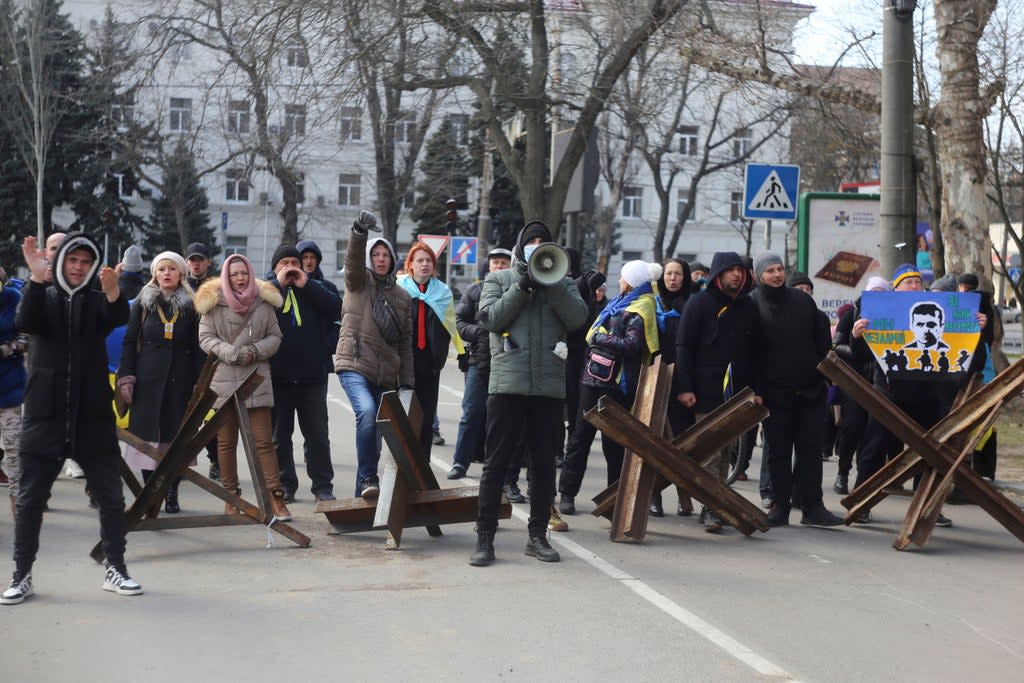Russian-controlled Kherson forced to begin using rouble

The Russian-occupied city of Kherson has been forced to start using the rouble, British defence chiefs have said.
The move to change the currency from the hryvnia is seen as another bid to erase Ukrainian identity from the city which has been under Russian control for 60 days.
However, Kherson’s Ukrainian mayor Ihor Kolykhaiev said he did not think it would be possible to install the currency while the only working banking system in the region is Ukrainian.
Kherson is strategically important for Russia as it provides a partial land link between the Crimea peninsula - which Moscow annexed in 2014 - and Russian-backed separatist areas in eastern Ukraine.
In an update on the situation on the ground in Ukraine, the British Ministry of Defence said: “Since seizing the southern city of Kherson in early March, Russia has sought to legitimise its control of the city and surrounding areas through installing a pro-Russian administration.
“Recent statements from this administration include declaring a return to Ukrainian control ‘impossible’ and announcing a four-month currency transition from the Ukrainian hryvnia to the Russian rouble. The Russian rouble is due to be used in Kherson from today.
"These statements are likely indicative of Russian intent to exert strong political and economic influence in Kherson over the long term.
"Enduring control over Kherson and its transport links will increase Russia’s ability to sustain its advance to the north and west and improve the security of Russia’s control over Crimea."
A resident of Kherson told the BBC that there was small acts of protests going on within the city against the Russians - including a refusal to use the rouble.
“I think most people will leave here if the rouble is introduced,” Olga, who didn’t want to use her real name, told the BBC.
“At the moment there are still currency exchanges operating in the city. If I am paid in roubles, I think I will just go and exchange it for hryvnia, I think others will too. It’s just a small act of protest.”
The US has warned that the Kremlin might attempt "sham referenda" in southern and eastern areas of Ukraine that it had captured since the invasion began on 24 February, by using "a well-worn playbook that steals from history’s darkest chapters".
Earlier this week, Ukrainian President Volodymyr Zelensky warned that "pseudo referendums" in Kherson would spell an end to Moscow-Kyiv peace talks.

 Yahoo News
Yahoo News 
